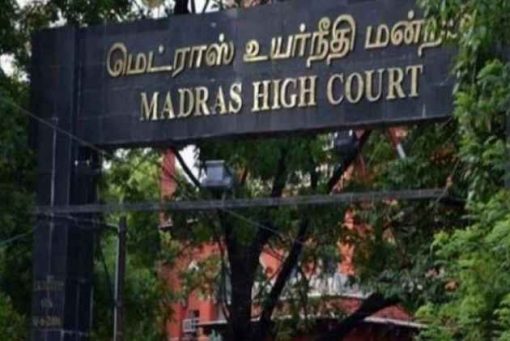
In a landmark judgment, the Madras High Court ruled that writing the father’s name is not mandatory in birth certificates.
The judgement came after Ms Madhumita Ramesh filed a writ petition in the Madras High Court against the Tiruchi Municipal Corporation (TMC). The petitioner had undergone intrauterine insemination after her divorce and gave birth to a baby girl on 23 April 2017. TMC issued the birth certificate for her daughter in August, where they named the sperm donor as the father. Objecting to this, Ms Ramesh asked TMC to reissue the birth certificate without the sperm donors’ name; TMC refused saying that the law requires that birth certificates carry the father’s name.
TMC argued that as per the Registration of Births and Deaths Act, 1969 and the Tamil Nadu Registration of Births and Deaths Rules, 2000, it is mandatory to record the both the parents’ name in the register. Referring to this clause in the judgement and criticising the old Act, Justice MS Ramesh said, even though the old rules don’t have the provision to erase the father’s name from the certificate, in the current case:
… the woman has gone through “Intrauterine Fertility Treatment”… The affidavit of Mr.Manish Madanpal Meena, dated 31.01.2018 evidences that he is no way related to the petitioner and that the petitioner was only an acquaintance who had helped her on humanitarian ground in the hospital, during the time of her delivery.
The judge further added that it should be enough for the mother to submit an affidavit that the child was born from her womb. The court also stated that since the child was conceived through artificial insemination, the sperm donor should not be named as the father of the child, or mentioned in any other way on the birth certificate.
“It’s a highly progressive move because it recognises the primary right of mothers to their children’s custody and natural guardianship,” said Sujata Madhok, a journalist who specialises on women’s issues.
The judgement has also been welcomed by women’s rights activists.
Writer and activist Githa Hariharan says, “It’s high time the law made this move to insist on a single mother’s rights and, indeed, the right of the child to the only functional parent she has. Laws must reflect reality, and this reality includes mothers who never married; mothers who have been deserted; and mothers who are divorced or separated.”
In 1999, the writer (in the case Githa Hariharan and another Vs. Reserve Bank of India) challenged the validity of Section 6 of the Hindu Minority and Guardianship Act of 1956 in the Supreme Court. In 1984, the writer applied to the Reserve Bank of India for 9% Relief Bond to be held in the name of her son Rishab, a minor at the time, along with an intimation that the she, being the mother, would act as the natural guardian for the purposes of investments. The application, however, was sent back by the RBI authority advising her to produce the application signed by the father. A Supreme Court bench, chaired by Justice Umesh C Banerjee, criticised the existing law and passed a historic judgement saying that a mother’s right over the child cannot come “after” the father in the matter of guardianship; they are both to be considered equal.
ICF spoke to Shalini Dixit in Bangalore who faced something similar when admitting her child to a school.
“I had to fight legally to get my child’s custody, in addition to dealing with the social stigma that comes with being a single mother. What made this worse, for me, was that my child’s school required me to mention the father’s name in all the documents. When I refused, they asked me to give it in writing that I was the sole caretaker of the child. In the ID cards of the student’s, only the father’s name is mentioned. I objected to this and insisted that they write my name instead of the father’s. The problem is that it is assumed that a child’s legal caretaker and guardian is the father. This judgement will make things easier for single mothers.”
What is common in all these cases is the underlying presumption that a man is superior to a woman. Consequently, a father’s identity is considered central to the child’s identity.




